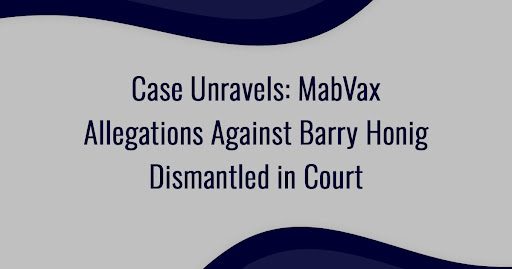The vaccine advisory panel newly reconfigured by Robert F. Kennedy is delaying its decision on whether to continue recommending that children universally receive their first dose for hepatitis B vaccination at birth.
In a surprise move Friday morning, the Advisory Committee on Immunization Practices (ACIP) tabled its scheduled vote over the merits of universal hepatitis B vaccination starting at birth—a policy first enshrined by the ACIP over 30 years ago. Experts at the Centers for Disease Control and Prevention and others strongly pushed back on the change being debated by the ACIP, which would have recommended children whose mothers test negative not receive the vaccine until at least one month of age.
A 30-year safety net
In 1991, the then-members of the same panel recommended that everyone should be vaccinated against hepatitis B, including children. Notably, this approach was endorsed after the failure of the previous strategy of trying to only vaccinate people identified as high-risk (such as people who inject drugs or people who have risky sex).
The panel first recommended that all children receive their first of three hepatitis B shots either at birth or between one and two months of age. By 2005, the panel only endorsed getting the first shot at birth (with the exception of especially small premature infants).
At Thursday’s meeting, CDC staff provided myriad reasons why this universal strategy remains valuable. The virus can be passed from an infected mother to the child during childbirth. And while many cases of hepatitis B in children are asymptomatic, most will develop a lifelong infection, and about 25% will experience serious health problems that can be life-threatening, including cirrhosis and liver cancer. Thankfully, widespread hepatitis B vaccination has significantly driven down cases of the viral infection in the U.S., particularly among newborns.
Critics, however, have argued that since mothers are also encouraged to receive prenatal screening for hepatitis B, not all children need the vaccine. But at the meeting, CDC staff presented data showing that many women in the U.S. (about 12% to 16%) do not receive this screening and that prevention programs often fail to identify infants born to infected mothers. There’s also evidence that young children can be infected by other family members, meaning a mother with a negative test doesn’t guarantee a lack of risk.
Given these gaps in the testing and detection of hepatitis B cases, CDC experts argued that universal birth vaccination is an important safety net for children in the U.S. And while some peer countries do not vaccinate their children against hepatitis B at birth, CDC staff also noted that these countries usually provide universal health care and are better able to screen for the viral disease in mothers than the U.S. currently can.

The CDC also presented data showing that the hepatitis B vaccine is considered to be very safe in children, with most side effects, like pain and soreness, being mild and short-lasting. In a recent systematic review conducted by the CDC, they failed to find evidence of a link between the vaccine and potential severe side effects such as anaphylaxis, neurological problems, and sudden death (some research has suggested that anaphylaxis may occur in one of every million children given the hepatitis B vaccine).
Perhaps most importantly, the CDC presented no evidence suggesting that children face a higher safety risk from receiving the hepatitis B vaccine at birth compared to later in life.
An unexpected vote to delay
Following an overly long meeting yesterday, the ACIP pushed its vote on the hepatitis B vaccine to this morning. And given the ACIP’s “yes” vote on barring the combined measles, mumps, rubella, and varicella for children under four yesterday—a vote that outside experts also strongly opposed—it seemed unlikely that the new ACIP would have maintained the current policy.
For now, universal hepatitis B vaccination at birth remains safe, though for how long, who knows? The ACIP did not provide a timetable for reconsidering the vote. The next ACIP meeting is scheduled for October 22 and 23, which is the last meeting scheduled for the year. But several ACIP members and outside experts have called for the ACIP to form a working group to better discuss the matter, which may delay the vote further.


Leave a Reply